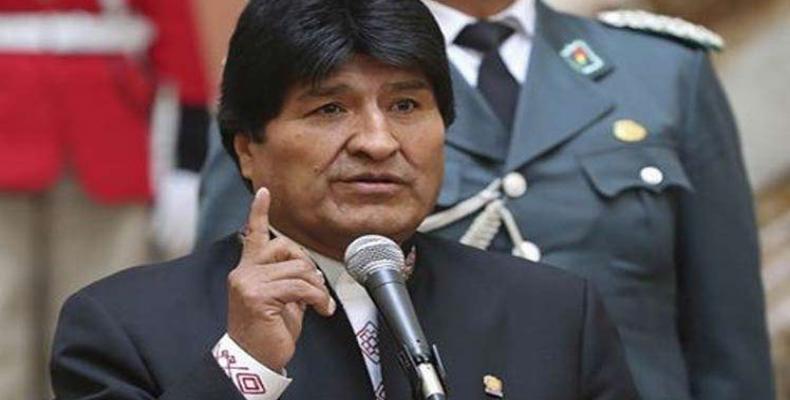La Paz, June 12 (RHC)-- Ibero-American ex-presidents have launched an attack on Bolivian President Evo Morales and his 2019 presidential campaign. Twenty-one presidents from the linguistically and historically connected nations, who sometimes associate as the Ibero-American countries, signed a letter condemning the Bolivian president’s campaign for re-election, calling on the Organization of American States to intervene.
Their letter accused Morales of a “grave violation” of the International American Convention on Human Rights by participating in this year’s elections and dismissing the rules limiting re-election. The letter continued by accusing the president of violating human rights by forcing the country’s Plurinational Constitutional Court to support his candidacy.
Evo Morales retorted: “They should ask themselves where they come from: most of them come from coups d'états, from military dictatorships, most come from Operacion Condor,” he said, referring to the U.S.-backed operation which flew throughout South America, violently targeting anyone perceived to be a threat to its military power and neo-liberal policies.
Evo Morales’ candidacy was authorized by the Supreme Electoral Court after his victory in the January elections earlier this year. General elections are due to be held in October of this year, and this is Evo Morales’ third time running for president since the founding of a new ‘plurinational state.’ He has held office since 2006, winning three consecutive elections.
Evo Morales, in an attempt to show transparency and dispel fears, turned to the polls and has received enormous support from the public, winning 35.6 percent in February — 5.1 percent more than his leading opponent. In March, a second poll — conducted by Celag — showed 45 percent were planning to vote for him in October.
On May 18, Morales also signed a document agreeing to OAS observers at the October polls. "I fully understand the responsibilities of international organizations and this agreement for observers at the October 20 elections is a way to make them transparent."
Since taking office in 2006, Morales has directed the country into record economic growth rates making Bolivia the fastest growing economy in the region. The Andean nation, that has at least 36 distinct Indigenous groups, has achieved greater social inclusion and a 50 percent poverty rate reduction under Evo Morales, who has been praised by both the United Nations and the neo-liberal International Monetary Fund for these accomplishments.


